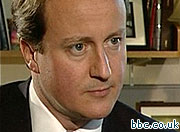Only eleven per cent of voters in marginal constituencies think religious liberty has improved since David Cameron became Prime Minister, according to a new survey.
The ComRes poll, commissioned by The Christian Institute, found that over four in ten (44 per cent) of those surveyed support legal protections for people with “sincere, profoundly held beliefs”.
ComRes surveyed 1,000 British adults living in the 40 most marginal Conservative/Labour constituencies last month.
Equality legislation
Only 21 per cent disagreed that the “tide of equality legislation has gone too far in elevating equality over religious freedom”.
Colin Hart, Director of The Christian Institute, said the results should act as a “wake up call” to party leaders, as voters in key marginal seats are “very concerned about threats to religious liberty and free speech”.
“Those surveyed rightly believe that religious freedom in this country has not improved under Mr Cameron’s leadership.
Undermining faith
“The Government inherited Labour’s 2010 Equalities Act which during his premiership led to high profile cases widely seen as undermining faith.
“Various court rulings at home and in Europe have been particularly damaging to free speech and religious freedom in this country. Yet instead of amending the law, the Government strongly backed the rulings. It has helped create a hostile climate.”
Mr Hart highlighted examples such as Adrian Smith, the former housing manager who was demoted and had his wages cut after he disagreed with gay marriage on his Facebook page, and the Christian B&B owners Mr and Mrs Bull who were fined for refusing to let a same-sex couple share a bedroom.
Real protections
“This poll confirms the high levels of concern that the public have about religious freedom and free speech in the UK after four years of the Coalition Government. They feel that there has been no improvement and the only way this can be addressed is to offer people of faith and beliefs real protections. If they are to be meaningful they must be enshrined in legislation. “
Earlier this year, the Deputy President of the UK’s Supreme Court suggested that the law should ‘reasonably accommodate’ a Christian’s beliefs.
She said: “Instead of all the technicalities which EU law has produced, would it not be a great deal simpler if we required the providers of employment, goods and services to make reasonable accommodation for the religious beliefs of others?”

